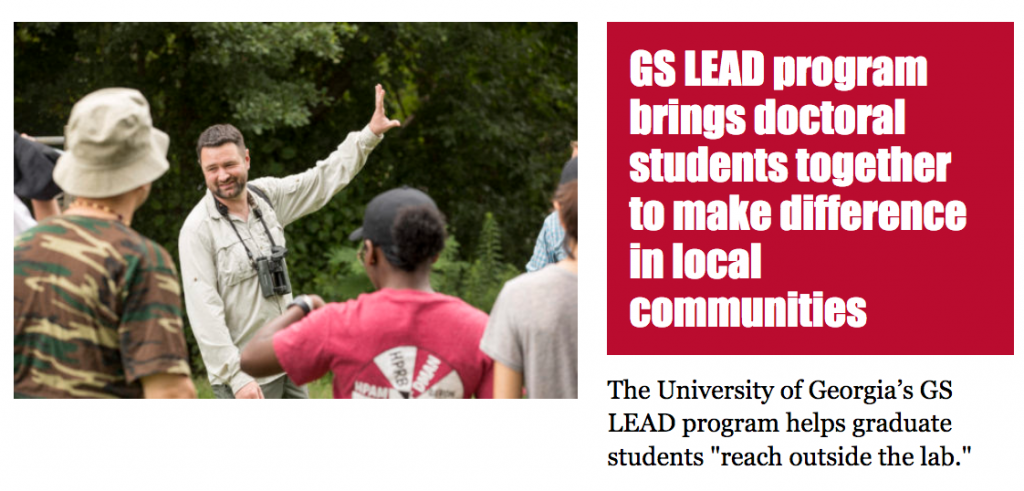
The University of Georgia rolled out ambitious plans to improve water quality and recreational access at Lake Herrick, a beautiful green space on campus, but how will increased use by people influence the wildlife that calls it home? Following a letter detailing potential impacts on the site’s birdlife co-signed by UGA faculty, the National Audubon Society’s chapters in Athens and Atlanta, Richard worked with Ecology seniors in an Environmental Practicum class, and met incoming graduate students in the interdisciplinary GS-LEAD program, to discuss potential solutions. These meetings resulted in a report shared with the Office of Sustainability featuring recommendations and site improvements to minimize human-wildlife conflicts, including keeping some areas of the lake disturbance free, replacing perching and nesting structures used by swallows and waterbirds in the lake, and initiating discussions between the Oconee Forest Park and State Botanical Garden to develop a native planting plan around the stormwater pond.